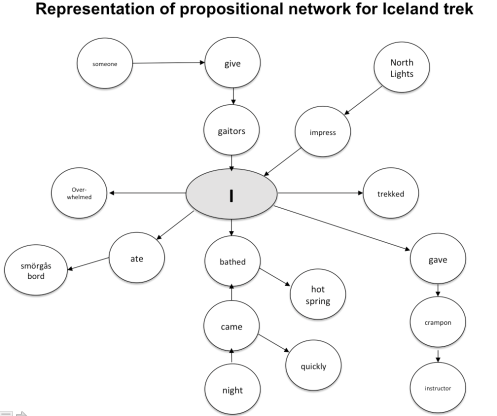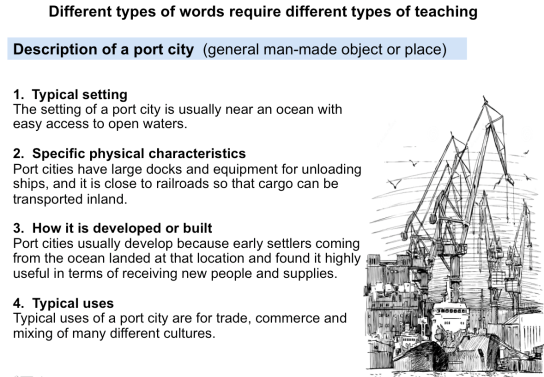There are many great posts on how to teach vocabulary, including this one by Katie Ashford and this one by David Didau. Doug Lemov’s forthcoming book promises to add even more practical advice to our understanding of the best ways to improve students’ language fidelity. Whilst I commend these wonderful ideas and very much look forward to reading Doug’s new book, I wonder if these approaches fully exploit the potential for student academic achievement, particularly in schools where levels of academic attainment are low.
The relationship between academic achievement and high vocabulary levels is sadly all too noticeable in the classroom, particularly the further up the school you get where the language differential between the word-rich and the word-poor is often stark. It should surely come as no surprise to anyone who has taught in a school with any kind of broad intake that this correlation is well established in the research field. It is patently clear on a day-by-day basis.
At our school we certainly have a language discrepancy between our highest and lowest achievers. This gap strikes me every year I teach the GCSE language exam. Whilst I do my best to help students approach their interpretations and analysis as effectively and efficiently as they can, there is always the same elephant in the room: it is invariably students’ levels of background knowledge that determines how well they will do, and not how much they stick to the tight procedures I put in place for how they annotate their texts or structure their written responses. It is so frustrating (and upsetting) to get students really good at understanding one passage, only to go back to square one when the topic changes to something else.
Most of the superb ideas I mentioned above about how you can go about bridging this gap between the language haves and have-nots seem to concentrate on teaching tier two words. As you are probably know, the term tier two comes from Isabella Beck’s fantastic book Robust Vocabulary Instruction. In it Beck identifies three main word family groupings. Tier one refers to words children encounter on a regular basis and which are therefore common to most students’ vocabularies. Tier three are specialist subject terms, whilst tier two refers to high frequency words that occur across a variety of domains, but are unlikely to be experienced by children in the normal course of events. It is these tier two words that most advocate to leverage in an effort to counter the Matthew effect.
I am not entirely sure about this line of thinking; rather, I think that maybe tier two words should not be the main priority for those interested in addressing the underlying issue of student underachievement: low levels of academic background knowledge. If the propositions below are true, then following Beck’s advice to use precious teaching time on improving the breadth of students’ tier two vocabulary may not be the most efficient use of scarce resources, particularly in the short term. It might be better to focus on improving students’ learning of subject-specific tier three words and phrases – the very thing that Beck dismisses because she believes such terms are learned during everyday teaching.
From my experience this is not always the case. A lot of the time students do not adequately learn the meanings of words that are integral to their different subjects. Every year, without exception, I have to teach my incoming exam class pretty much all the poetic terminology they need to be successful at GCSE level. You would have thought that for the past 11 years they had never heard of a metaphor, or were missing the lessons where monologue, imagery and sonnet were discussed. Maybe this reflects badly on my school, but since this is third school in which I have taught and in each a similar issue has occurred, I suspect not. If this is a more widely experienced phenomenon, perhaps it would be more sensible to focus on getting the teaching of subject vocabulary right first time before we tried to broaden our efforts on teaching wider academic language, which if we are honest is unlikely to make a big difference unless the full weight of the schools’ effort is directed towards making such an approach work.
If our main intention is to raise student attainment and we accept that increased levels of academic background knowledge are vital to achieving this end, then designing a programme of direct vocabulary instruction that focuses on teaching academic background knowledge through vocabulary instruction is probably the way to go. Robert Marzano certainly seems to think so, and in his excellent book Building Background Knowledge for Academic Achievement, he not only offers a thorough unpicking of the rationale behind such an approach, but also provides a step-by-step guide on how to make it work in your school.
Marzano explains how knowledge is organised in propositional networks. Drawing upon the framework outlined in Clark and Clark’s (1977) ‘Psychology and Language’ paper, he offers 8 different types of propositional statement. Below is what these statements look like for an imaginary child’s first trip to Iceland to go trekking across the countryside:
- I trekked. (subject performs an action)
- I was overwhelmed. (subject possess a characteristic)
- I ate from a smörgåsbord. (subject performs an action on something)
- I bathed in a hot spring. (subject performs an action in a specific location)
- I gave my crampons to the instructor. (subject transfers something)
- Night time came quickly. (action is performed or occurs in specific manner)
- Someone gave me some gaitors. (someone transfers something to subject)
- The Northern Lights impressed me. (Something has an effect on subject)
Below is a representation of the propositional network for this experience.
Marzano explains how ‘our background knowledge is initially linguistic descriptions of what we have experienced’ and that over time these ‘linguistic descriptions shed their connections to a particular event and describe general forms of the event.’ This means that as the fictional child who went trekking in Iceland gets older, her specific one-off experiences of trekking become increasingly abstract until – with enough opportunities for deep processing and encoding – they take on the characteristic of more generalised forms of background knowledge. Such a decontextualized propositional network for the knowledge of trekking in Iceland might looks like this:
What Marzano describes is essentially the process through which we gain background knowledge, and the excellent news is that this does not necessarily have to be experienced directly i.e. our imaginary child does not actually have to trekking in Iceland, but can rather still gain the knowledge of an authentic experience by reading about it in a book and learn the same things about the climate and the culture, though indirectly. This is one of the powerful effects of reading: it’s ability to build background knowledge and generate the kind of schema a student needs to read as successfully about global warming, as about the rainforests of Ecuador or trekking in Alaska during the gold rush.
Perhaps the most powerful point that Marzano goes on to make is that this kind of academic background knowledge manifests itself through vocabulary. The best way to illustrate this idea is through an example. If you take the term ‘port city’, a typical dictionary based definition may look something like this.
For Marzano, different words require different definitions according to their role and function. Port city comes under the category of general man-made object or place, and as such any good description of the term requires details of its typical setting, specific physical characteristics, how it is developed or built and its typical uses. A description of port city might then look something like this:
For me, thinking about words in this way was a bit of an epiphany. As you can see there is a considerable amount of knowledge and interrelated understanding that underpins just this one term: port city. This example helped me appreciate the extent to which individual words and phrases are the site through which vast networks of knowledge converge. I also see more clearly why students so often forget the meanings of subject specific vocabulary like ‘monologue’ or ‘genre’; it was probably never explained to them in this much detail or systematically returned to enough times for it to stick. Maybe we make far too many assumptions about what we think students have covered or already know.
It is for these reasons that we have decided to build a vocabulary programme across the school with subject-specific, or tier three words and phrases, at the heart. We will also teach some tier two words, as well as a concurrent root word programme in tutor time, which my wonderful colleague Josie Mingay has written about here. The focus, though, is more on teaching tier one words properly so that the interrelated networks of knowledge can develop and link over time. In my next post I will explain Marzano’s guide to the effective steps in a vocabulary programme and exemplify what this might look like using some of the materials I developed over the summer term with my year 10 class.
For now, I thought it best to avoid making a long post even longer and falling foul to the kind of abuse handed out to Kev Bartle by Stephen Lockyer in his keynote at the Teaching and Learning Takeover.
Thanks for reading and thanks to David Fawcett and Jen Ludgate for giving me the opportunity to present on this topic at TLT15!







This sounds interesting and worthwhile. Anything that helps subject teachers better teach the Tier 3 (you say Tier 1?) vocabulary on which the conceptual understandings of the subject depend is fantastic. You’re right to point out that this is, perhaps, not something many teachers do well. This problem tends to be all too visible – teacher fails to teach the academic language of their subject well: students fail. The incentives for teachers to exemplify, explain, model and scaffold the use of academic language are fairly clear and could be further addressed through more subject specific CPD.
But the problem with having this as a ‘whole school’ rather than a subject by subject focus is that then nobody takes responsibility for tier 2 vocab. Tier 3 vocab is, usually, framed with tier 2 words and if we neglect these building blocks which so many teachers take for granted then all the efforts we put into subject specific words may end up being for naught.
Just a thought.
Reblogged this on The Echo Chamber.
Thank you, that’s really interesting. I think in the earliest phases of language acquisition (0-5 years), you have to go with direct experience, because that is where all the vocabulary is, in the concrete world (a book about Port Cities is still a few years in the future). It’s interesting how it moves outwards as children get older. I wonder if a direct experience of the ‘thing’ (whether a monologue or the Northern Lights) makes it ‘stick’ better? Mind you, all those dinosaur names stuck in my kid’s head without him needing to meet the actual dinosaurs. It’d be interesting to consider why those really complex, subject specific words stick for some children – a powerful interest/motivation, maybe?
Thanks, Sue. I cannot really comment on early years and their direct experiences. As a father, there are some concepts my children are really drawn to (and remember) and others less so. They don’t seem to need direct experience, though that does sometimes help. Motivation does seem to play its part, but that bound up with wider links and repeated exposure. Sounds like what it means to be a teacher! Thanks again.
Thanks for writing this up. I am fairly new to the literature on literacy but am just starting some action research which I think will focus on selecting the passages KS4 and 5 students read when meeting new scientific topics, rather than relying on only the current textbook (I don’t have any KS3 this year). I want to see if this improves the fluency of students identified as struggling with comprehension and vocabulary in non-calculation questions. I want to provide more opportunities for students to get a feel for how the ‘keywords’ are used in sentences.
Is the vehicle of using passages to read implicit in your ‘tier 2/3’ whole school focus? I don’t know enough about how to go about it to discern whether you’re talking about preparing lots of stubs or definitions or a larger focus on wider reading, assessing and going over what you want them to pick up from it.
Hi Ruth.
Thanks for leaving a comment. If I understand your question correctly, I am initially interested in developing coherent descriptions of subject specific terms for use across the schools so the language is common to all. I am not currently planning on developing separate passages with the words contained within them, though these types of activities would come later at the teachers’ discretion. After checking initial understanding of meaning, deeper activities have to draw upon language in authentic context, which it seems you are thinking about.
Best of luck.
Phil